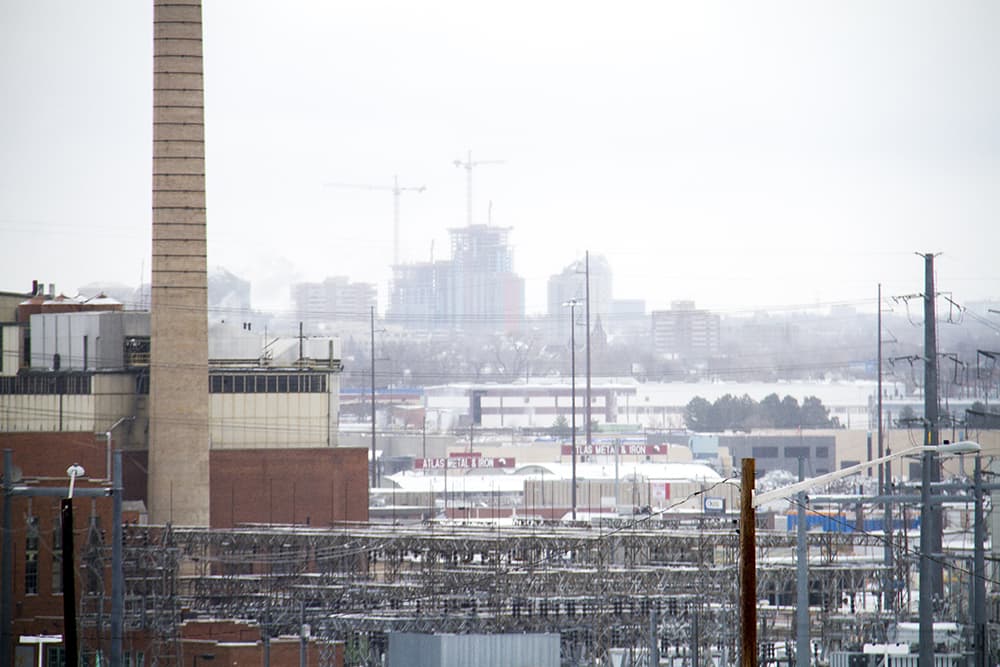Eventually, new homes and buildings in Denver will be far less dependent on natural gas, the methane-based pollutant that helps heat spaces and cook food, if all goes according to plan.
In its latest attempt to fight climate change, Denver's Office of Climate Action, Sustainability and Resiliency committed to the change in a plan released Tuesday that calls for newly built homes and buildings to be mostly electrified by 2027 with renewable power sources like solar and wind, either onsite or offsite.
Reaching that goal will require limiting natural gas as an option for new structures, according to the catchily titled "Net Zero Energy New Buildings & Homes Implementation Plan." That likely means severely reduced natural gas infrastructure in 2024 for new homes and 2027 for new commercial buildings.
Changes to natural gas rules will come via revisions to Denver's building code, the rulebook for new construction. The Denver City Council will have to sign off on the revisions.
The city is focused primarily on rolling back the prominence of gas-fired heat and, to a lesser extent, gas used for cooking, said Amber Wood, the lead author of the plan.
The potential rule changes are meant to help Denver get to net-zero emissions in its new homes and buildings by 2030. But because it's unclear what technology will be available, Wood said the climate office wants to shape policy that significantly reduces natural gas use without completely shutting the door. The plan does not recommend banning natural gas hookups -- the connections to the grid -- in new buildings. The oil and gas industry floated a ballot proposal last year that would've preempted Colorado cities and towns from banning natural gas hookups but ultimately pulled the measure.
"We are open to technology as it changes, but as we see it today ... in order to get to those high-performing buildings we want with low or no emissions, the best way to do that is to create building codes that have really high-efficiency built into them, really high performance standards for efficiency and, by and large, mostly all electric equipment for those end users," said Grace Rink, executive director of the city's climate office.
Mike Henchen, who works on the carbon-free building program at Rocky Mountain Institute, a nonprofit that focused on clean energy transformation, said these types of policies help grow the market for clean energy.
"It's not enough by itself, it's hugely important in its own right," Henchen said. "It helps develop that whole marketplace," he added, referring to emerging clean energy infrastructure, much of which is still unbuilt despite Colorado's fertile sun and wind resources.
The city's homes and buildings are the leading cause of greenhouse gas, according to the climate office. And officials estimate that 40 percent of the buildings Denver will have on its soil by 2050 haven't been built yet.
"It's a big deal," Henchen said. "Implementing a policy focused on new buildings actually is going to have a lot of impact over time because there's so much new construction expected."
Curbing Denver's addiction to natural gas is just part of the climate office's policy framework to reach net-zero emissions.
Xcel Energy, the utility that provides electricity and natural gas to Denver, is reviewing the plan, said spokesperson Michelle Aguayo. In a prepared statement, she touted the voluntary nature of the company's low-carbon programs as a way to meet customers where they are.
"Customers' preference is also top of mind for us," Aguayo wrote. "New all-electric buildings and homes have a part in a low carbon future, and we currently offer a program that supports this type of development. Under a voluntary approach, we have more flexibility to work with customers and communities on a variety of solutions to reduce emissions affordably and reliably -- whether through electrification or through reducing the carbon content of what is in the pipe."
Xcel has committed to providing 100 percent carbon-free electricity in the next 30 years.
CORRECTION, 8:17 a.m.: An earlier version of this article erroneously stated that natural gas hookups would be banned from the city's building code. The city government is aiming to seriously limit the use of natural gas.












